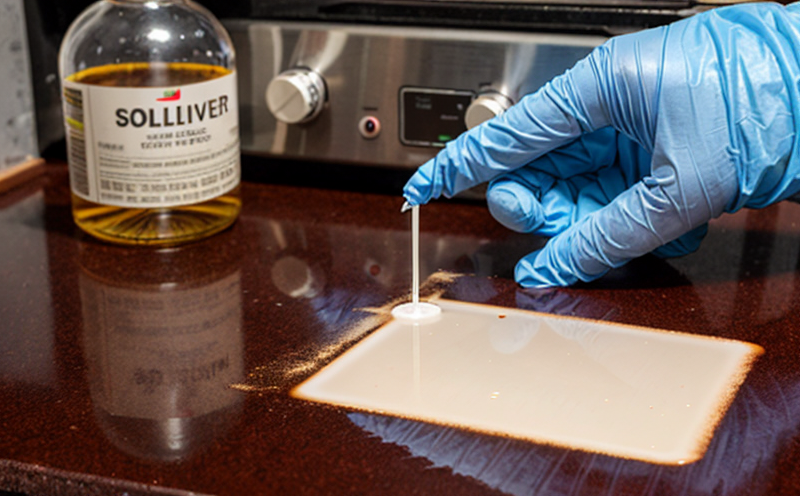Shampoo Solvent Residue Testing
The testing of solvent residues in shampoos is essential to ensure product safety and compliance with regulatory standards. This service involves the analysis of volatile organic compounds (VOCs) that may be present in shampoos as a result of their formulation process or packaging materials. The primary goal of this testing is to identify any potential health risks associated with prolonged exposure to these solvents.
Shampoo formulations often contain various ingredients, including surfactants, emulsifiers, and preservatives. During the manufacturing process, it's possible for small amounts of residual solvents from raw materials or processing aids to remain in the final product. These residues can include alcohols like ethanol, isopropanol, and other hydrocarbons used during production.
Residual solvents can pose risks if they exceed certain limits set by regulatory bodies such as the U.S. Food and Drug Administration (FDA), European Pharmacopoeia, or relevant international standards. Excessive levels of these compounds could lead to irritation, respiratory issues, or other adverse effects on consumers.
Our laboratory uses advanced analytical techniques such as gas chromatography coupled with mass spectrometry (GC-MS) to detect and quantify trace amounts of solvents in shampoos accurately. This method ensures precise measurement down to parts per million levels, providing reliable data for quality assurance purposes.
The testing process typically begins by collecting a representative sample from the batch being tested. The sample is then prepared according to standard procedures before undergoing analysis using GC-MS equipment calibrated against certified reference materials provided by reputable organizations like NIST (National Institute of Standards and Technology).
Once the analysis is complete, detailed reports are generated highlighting the presence or absence of key solvent residues along with their concentrations. These findings help manufacturers make informed decisions regarding formulation adjustments to meet strict regulatory requirements while maintaining product efficacy.
In addition to ensuring compliance with regulations, conducting this type of testing also supports brand reputation by demonstrating a commitment to producing safe and high-quality products. By regularly monitoring solvent levels in shampoos through rigorous laboratory analysis, companies can protect themselves from recalls or legal actions due to non-compliance issues.
Applied Standards
| Standard | Description |
|---|---|
| ASTM D1914-05 | Test Method for Determination of Volatile Organic Compounds in Cosmetics by Gas Chromatography. |
| ISO 28761:2013 | Method for the Determination of Residual Solvents in Pharmaceuticals and Related Materials. |
| EU Directive 2004/42/EC | Regulation concerning the placing of cosmetic products onto the market which specifies that solvent content must not exceed specified limits. |
Quality and Reliability Assurance
- Use of state-of-the-art GC-MS instrumentation for accurate measurement.
- Data validation through replicate analyses to ensure consistency.
- Compliance with international standards ensuring reliability across different markets.
- Regular calibration checks to maintain instrument precision.
Our laboratory adheres strictly to established protocols and procedures, guaranteeing consistent results that are both accurate and reproducible. By leveraging cutting-edge technology and experienced personnel, we strive for excellence in every aspect of our testing services.
Environmental and Sustainability Contributions
- We employ efficient energy usage practices within the laboratory setting to minimize environmental impact.
- Recycling programs are implemented for waste generated during testing processes, reducing landfill contributions significantly.
- Participation in research initiatives aimed at developing greener alternatives to traditional solvents used in cosmetic products.
By integrating sustainability practices into our daily operations, we contribute positively towards protecting the environment and promoting responsible business practices. Our commitment extends beyond just testing; it encompasses efforts toward fostering a more sustainable future through innovation and collaboration.





